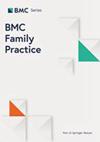评估加拿大艾伯塔省初级卫生保健提供者和组织应对家庭暴力的准备情况:开发德尔菲共识准备工具
IF 3.2
3区 医学
Q1 MEDICINE, GENERAL & INTERNAL
引用次数: 0
摘要
家庭暴力包括亲密伴侣虐待、虐待儿童和虐待老人,是一个严重的公共卫生问题。初级卫生保健(PHC)为识别和解决家庭暴力问题提供了一个重要的机会,然而,在初级卫生保健机构中有效实施家庭暴力干预措施却面临着各种障碍。本研究的目的是通过探索准备就绪的因素,改善艾伯塔省初级医疗保健机构对家庭暴力的识别和应对。研究采用了一种综合的知识转化方法,将实施科学和参与式行动研究相结合,开发了一种准备就绪评估工具,用于在艾伯塔省的初级保健机构中解决家庭暴力问题。研究分为三个阶段:第一阶段是快速证据评估,第二阶段是由医疗保健和家庭暴力专家组成的小组探讨艾伯塔省的准备就绪因素,第三阶段是利用三轮德尔菲共识建立过程来完善准备就绪指标。第 1 阶段的快速证据评估结果强调了用于评估在初级保健机构实施家庭暴力干预措施的准备程度的五种主要模式/工具。在第 2 阶段,通过与医疗保健和家庭暴力专家小组成员进行探讨,确定了更多概念,最终形成了在艾伯塔省初级医疗保健环境中评估家庭暴力准备程度的 16 个概念。在第三阶段的三轮德尔菲共识建立过程中,有九位专家组成员参与其中,他们就所有概念和指标的纳入达成了集体一致意见,从而为艾伯塔省初级保健机构应对家庭暴力的拟议就绪度评估工具提供了总共 60 个项目。目前的研究为未来的家庭暴力干预计划奠定了基础,深入了解了促进实施综合计划和支持初级保健机构有效解决家庭暴力问题的关键要素。本文章由计算机程序翻译,如有差异,请以英文原文为准。
Assessing primary health care provider and organization readiness to address family violence in Alberta, Canada: development of a Delphi consensus readiness tool
Family violence, which includes intimate partner abuse, child abuse, and elder abuse, is a serious public health concern. Primary healthcare (PHC) offers a vital opportunity to identify and address family violence, yet barriers prevent the effective implementation of family violence interventions in PHC settings. The purpose of this study is to improve family violence identification and response in Alberta’s PHC settings by exploring readiness factors. An integrated knowledge translation approach, combining implementation science and participatory action research, was employed to develop a readiness assessment tool for addressing family violence within PHC settings in Alberta. The research involved three phases: phase 1 involved a rapid evidence assessment, phase 2 engaged a panel of healthcare and family violence experts to explore readiness components in the Alberta context, and phase 3 utilized a 3-round Delphi consensus-building process to refine readiness indicators. Phase 1 findings from a rapid evidence assessment highlighted five main models/tools for assessing readiness to implement family violence interventions in PHC settings. In phase 2, additional concepts were identified through exploration with healthcare and family violence expert panel members, resulting in a total of 16 concepts for assessing family violence readiness within the Alberta PHC context. The 3-round Delphi consensus-building process in Phase 3 involved nine panelists, who collectively agreed on the inclusion of all concepts and indicators, yielding a total of 60 items for the proposed readiness assessment tool for addressing family violence in PHC within Alberta. The current study lays the groundwork for future family violence intervention programs, offering insights into key components that promote readiness for implementing comprehensive programs and supporting PHC organizations in effectively addressing family violence.
求助全文
通过发布文献求助,成功后即可免费获取论文全文。
去求助
来源期刊

BMC Family Practice
医学-医学:内科
CiteScore
3.20
自引率
0.00%
发文量
0
审稿时长
4-8 weeks
期刊介绍:
BMC Family Practice is an open access, peer-reviewed journal that considers articles on all aspects of primary health care research. The journal has a special focus on clinical decision making and management, continuing professional education, service utilization, needs and demand, and the organization and delivery of primary care and care in the community.
 求助内容:
求助内容: 应助结果提醒方式:
应助结果提醒方式:


